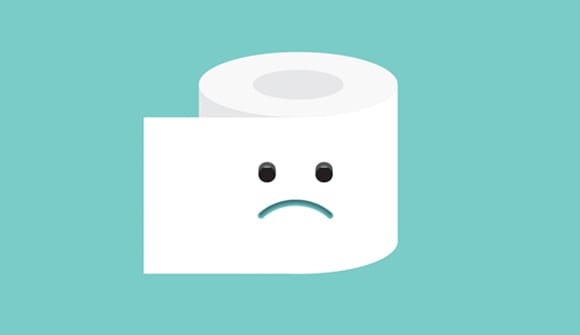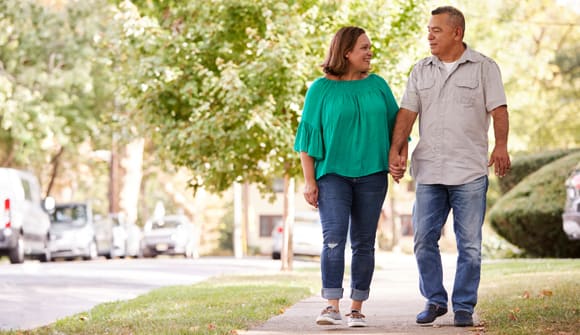All stopped up
Ways to overcome constipation.
Article Date:

We've all been there. You sit on the toilet and wait for what feels like an eternity, but nothing (or barely anything) happens. You're constipated and feel bloated and uncomfortable.
The good news is you can often relieve constipation by changing your diet, exercising or taking over-the-counter or prescription medications. Even better, there are steps you can take to keep from getting stopped up in the first place.
Signs you are constipated
Being constipated generally means you've had:
- Three or fewer bowel movements in a week.
- To strain when you use the toilet.
- Lumpy or hard stools that are difficult to pass.
- A feeling that you're not finished after you go.
"Constipation can cause abdominal discomfort, fatigue and feelings of heaviness," said Baptist Primary Care physician Sarah Adams, MD. "It can also cause you to lose your appetite because you feel full more quickly."
Ways to improve regularity
Fortunately, in most cases, you can improve your regularity by simply making changes to your diet and lifestyle.
What you choose to or not to eat and drink can often lead to issues in the bathroom. Factors that can cause constipation include:
Diet full of meat, dairy products and processed foods high in fat, sugar and carbohydrates
Lack of high-fiber foods
Alcohol consumption
"Kids are particularly prone to constipation because the things they love to eat, like chicken nuggets, mac and cheese, bread and milkshakes, are high in sugar and carbohydrates," said Dr. Adams.
Regular physical activity is important to help keep your bowels moving. In addition to drinking plenty of fluids and exercising, you can avoid constipation by:
Consuming 25 to 35 grams of fiber daily by eating fruits, vegetables and whole grains with every meal
Managing your stress level
Picking a specific time each day to use the bathroom
Not waiting; You should go as soon as you feel the urge
However, one of the biggest misconceptions people have about their bathroom habits is feeling that something is wrong with them if they don't go every day.
"A lot of people don't go every day, especially as you get older and your metabolism slows down," Dr. Adams said. "It's not unusual at all."
Treatments to relieve constipation
If dietary changes or lifestyle modifications don't help, consider taking laxatives or stool softeners to make it easier to pass stool.
Bulk-forming over-the-counter (OTC) laxatives such as Metamucil®, Citrucel®, FiberCon® or Benefiber® help by absorbing water, softening stools and increasing the stool mass. Osmotic laxatives such as MiraLAX® work by pulling more water into your intestine.
Due to possible adverse effects, stimulant laxatives that help muscles move stools through the gut like Dulcolax® or Senokot® should only be used if other laxatives don't work.
Dr. Adams suggested giving laxatives three to seven days to do the job. "If things haven't returned to normal after a week, it's time to make an appointment to see your doctor."
If left untreated, chronic or severe constipation can lead to serious health conditions such as hemorrhoids, anal fissures (tears in the skin), rectal prolapses (when the rectum protrudes because of continued straining) and fecal impactions (when stool becomes stuck in your colon or rectum).
Secondary causes of chronic constipation include bowel obstructions, thyroid conditions, diabetes, pregnancy and neurological disorders such as multiple sclerosis or Parkinson's disease.
Concerned about your bowel movements or another health issue?
A primary care physician can work with you to help you find relief. To find the right doctor for you and your family, call 904.202.4YOU (4968) or fill out the request form.



